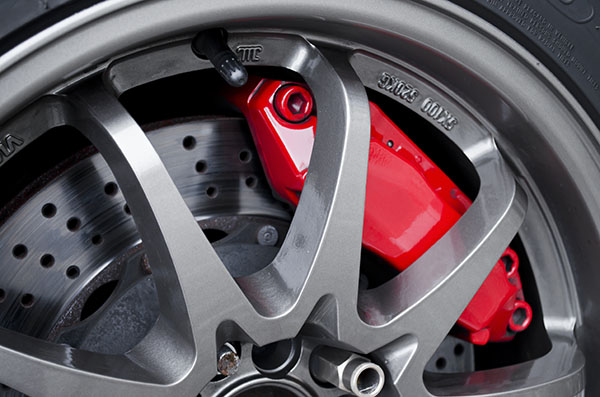
In the fast-paced world of driving, the ability to stop swiftly and safely is of utmost importance. This vital function is made possible by your car's brakes, which work tirelessly to bring you to a halt. But have you ever wondered how brakes handle the immense heat generated during the process? Well, if you have, this article will be the perfect read for you! Here is everything you need to know about brakes, how they dissipate heat, and how it affects them:
Understanding Brake Heat Dissipation
When you apply the brakes, the brake pads press against the brake discs (rotors), converting kinetic energy into heat energy. This friction generates an enormous amount of heat, which, if not adequately dissipated, can lead to brake fade and reduced braking efficiency.
How Brakes Dissipate Heat
Modern brake discs often feature ventilation holes or slots. These channels allow air to flow through, aiding in the removal of heat from the brake system. They are made from materials with excellent heat sink properties, such as cast iron or carbon-ceramic composites. These materials can absorb and disperse heat effectively, preventing the brakes from overheating.
Brake fluid plays a crucial role in heat dissipation. It transfers the heat generated at the brake pads to the calipers and brake lines, where it can dissipate into the surrounding air.
The calipers also play a part in heat dissipation. Some high-performance calipers are engineered with fins or cooling channels to facilitate heat transfer and dissipation.
Temperature and Brake Performance
Temperature can significantly impact the performance of your car's brakes:
- Brake Fade: Brake fade occurs when the brakes become less effective due to excessive heat buildup. In this state, the brake pads lose their friction capabilities, leading to a decrease in stopping power. Overheated brakes can compromise your safety and require a longer stopping distance.
- Warping and Cracking: Excessive heat can cause brake discs to warp or develop surface cracks, impairing their ability to grip the brake pads evenly. This can result in pulsating or vibrating sensations while braking.
- Reduced Braking Efficiency: When brake components reach high temperatures, their performance may decrease, necessitating a higher pedal effort for the same stopping power.
- Glazing: High temperatures can cause brake pads to glaze, forming a hard, smooth surface that reduces friction and braking effectiveness.
For all of your brake system repairs, maintenance, or part changes, contact us at Loyola Marina Auto Care - we won't "stop" at anything to ensure your safety!